Pressure washing is a common way to powerfully clean large surface areas, but which type is best? Learn all about the differences between Electric and Gas Pressure Washers.
Pressure washing has been popularly used as a cleaning tool since its invention in 1926.
Washing your car, patio, sidewalk, exterior house walls, and many other surfaces can be a very difficult, exhausting, and time-consuming task. Anyone who has spent time scrubbing grime off a patio can attest to the magic of a pressure washer. As the names imply, they’re either powered by gas or electricity, and use it to force water through a specialized nozzle at extremely high pressures. This works to breakdown buildup that has collected on pretty much any durable surface.
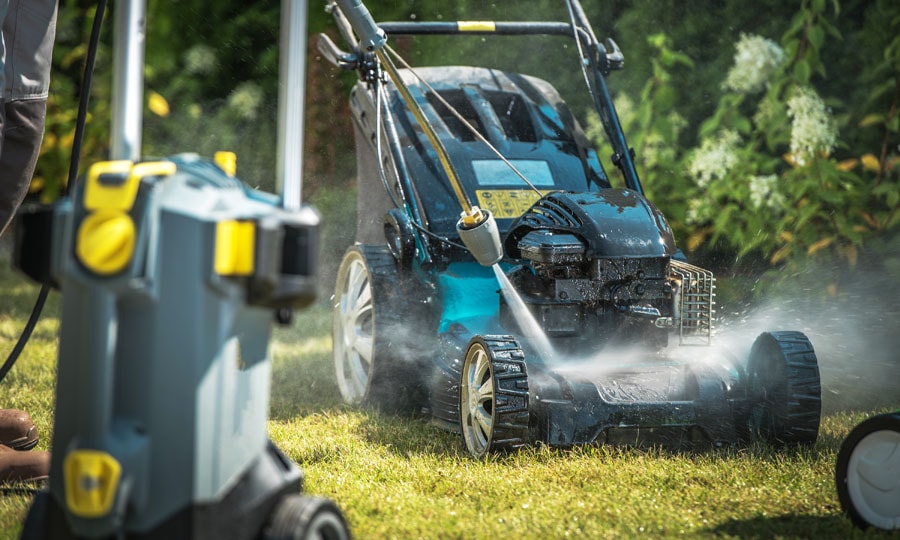
If you are considering buying a pressure washer and cannot decide between an electric or gas pressure washer, the Cleanup Expert is here to provide you with all the pros and cons of owning each. This will help you gain a more in-depth understanding of the differences between these types of pressure washers, allowing you to make the right decision when shopping around.
Let’s say you have an oil smear on your driveway. If you had a pressure washer, you could get rid of that hideous stain within minutes!
Pressure Washer Basics
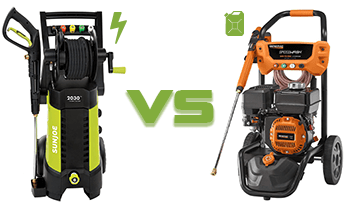
Pressure washers are actually pretty straightforward devices. You can use them to clean almost any outdoor item or surface with minimal effort thanks to high-pressure cleaning. However, never forget that pressure washers have around 60 times the pressure of a typical hose. As such, if not used properly they can lead to severe bodily harm. This comprehensive pressure washer safety guide will help ensure you’re carefully following all operating precautions and procedures.
Pressure washers fall into two primary categories: electric and gas. Before deciding on the right one for your own home, you must weigh the pros and cons of each. While both have the same overall purpose – their function, looks, and prices are just some of the things that make them different. Thankfully, this brief electric vs gas pressure washer article will help you know what you need and what you don’t.
Electric Overview
Electric pressure washers have around 1500-2000 PSI, or pound per square inch. They’re great for cleaning everyday items such as outdoor chairs, barbeques, sports equipment, decks, or even your car. They are also quiet and fairly portable, allowing you to use them in a wider range of situations. They also create no exhaust emissions and are very easy to maintain. They tend to be less costly than gas models, typically ranging somewhere between $90 to $180.
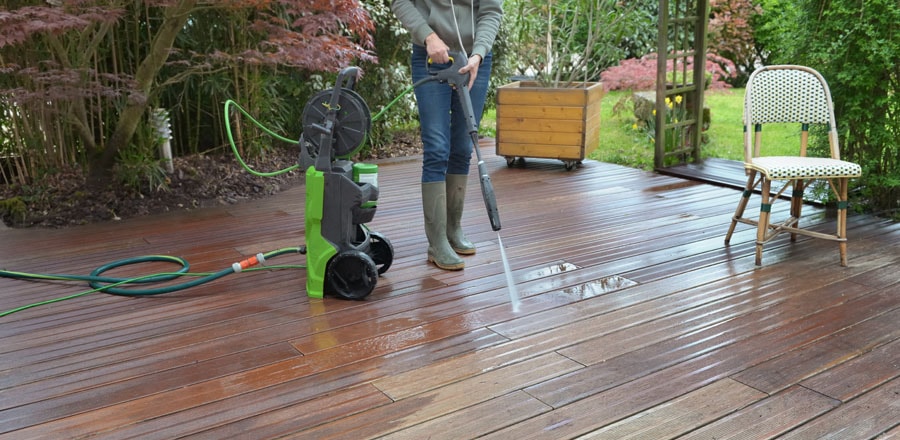
The key drawback to electric pressure washers is being plugged in, limiting where you can use them. Additionally, your average electric pressure washer is not designed to last for a long time, having shorter lifespans and damaging more frequently due to the plastic and other inexpensive materials they’re made of. If you think an electric pressure washer is a good fit, take a look at our in-depth reviews of these top rated electric power washers to kickstart your search.
Gas Overview
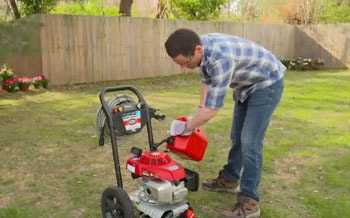
Gas pressure washers deal with the most challenging cleaning tasks, which is why they tend to be more expensive and durable tools with output typically ranging from 2800-4000 PSI. They’re generally used to clean larger areas such as walkways and parking lots, and are capable of removing even the most built up substances. The key reasons people prefer gas over electric ones are their build quality, often made of steel and aluminum frames, and for being completely portable, meaning you don’t need to plug them into an outlet while cleaning.
The main drawbacks to gas pressure washers include the maintenance checks, needing gas, and being bigger and noisier than electric ones. But perhaps the biggest drawback for some is their cost. With prices ranging from $200 to over $500 for more powerful models, they are not cheap. However, check our comprehensive gas pressure washer reviews to find the model that fits you best if your main concern is power.
Conclusions

In the end, there is no clear answer to which is better, because they both have their ideal uses. The choice should be made solely on what you need to use it for and how often you think you will be using it.
If you need one for lighter jobs then an electric power washer should be more than enough. However, if you need it for larger, more in-depth projects, you should go with a gas pressure washer built for that kind of task.
Hopefully, this article has helped you see the unique uses and features electric and gas pressure washers. We hope you are much better equipped to decide which is right for your needs. Don’t hesitate to ask us any questions you may have in the comments below. We will gladly help as soon as possible! Be sure to follow us on social media to stay up to date with all of the latest Cleanup Expert advice and reviews.

Pressure Washer Tips & Tricks

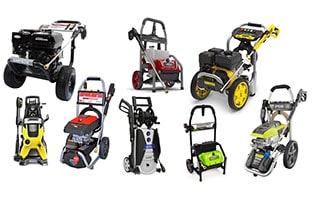
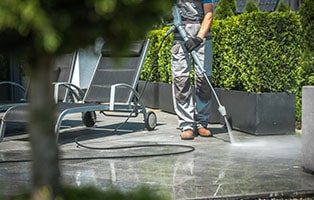
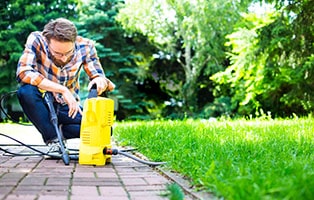
Excellent article. Thank you.